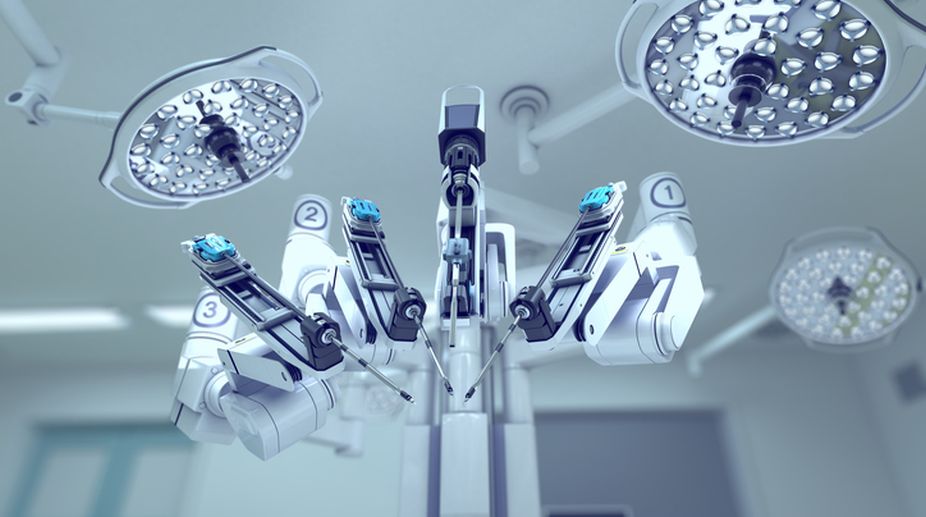A computer-driven automated drill that could perform a type of complex cranial surgery 50 times faster — decreasing operating time from two hours to 2.5 minutes — has been developed by researchers, including one of Indian-origin.
A translabyrinthine surgery is performed to expose slow-growing, benign tumours that form around the auditory nerves.
Advertisement
For such complex surgeries, surgeons typically use hand drills to make intricate openings, adding hours to a procedure and may also increase the risks of loss of facial movement.
However, the new automated machine replaces hand drills to produce fast, clean, and safe cuts, reducing the time the wound is open and the patient is anesthetised, thereby decreasing the incidence of infection, human error, and surgical cost.
"I was interested in developing a low-cost drill that could do a lot of the grunt work to reduce surgeon fatigue," said A.K. Balaji, Associate Professor at the University of Utah in the US.
The drill, which could play a pivotal role in future surgical procedures like hip implants, was developed from scratch to meet the needs of the neurosurgical unit, as well as developed software that sets a safe cutting path, the researchers said in the paper reported in the journal Neurosurgical Focus.
First, the patient is imaged using a CT scan to gather bone data and identify the exact location of sensitive structures, such as nerves and major veins and arteries that must be avoided. Surgeons use this information to programme the cutting path of the drill.
In addition, the surgeon can programme safety barriers along the cutting path within 1 mm of sensitive structures.
If the drill gets too close to the facial nerve and irritation is monitored during surgery, the drill automatically turns off.










